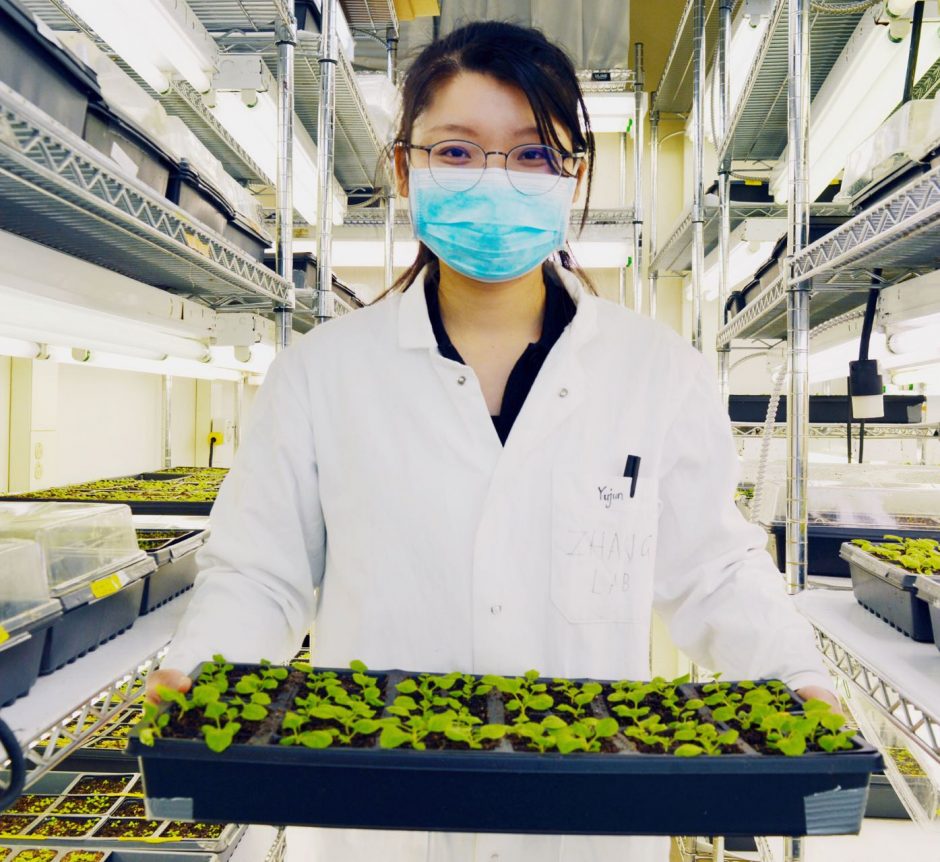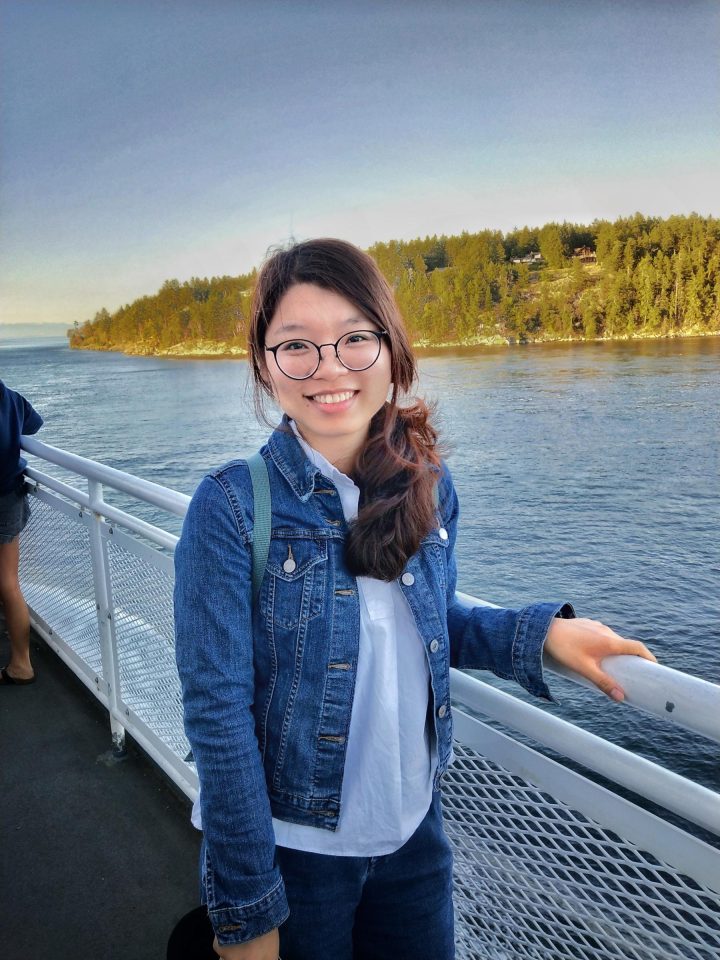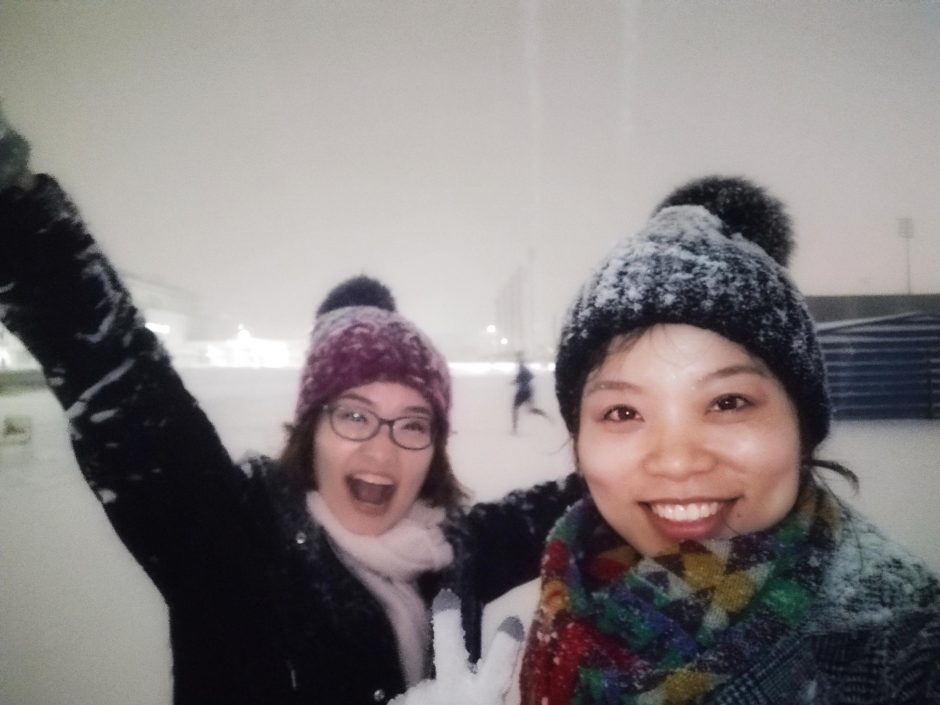
Yujun Peng, a member of Dr. Yuelin Zhang’s lab group, was recently awarded the Dewar Cooper doctoral fellowship for her work on the salicylic acid hormone signaling pathway. Her lab group focuses on how plant immune responses are regulated against the pathogen invasion, and early studies show that salicylic acid plays an essential role in plant immunity.
“Recent research has uncovered the receptor of salicylic acid in plants,” said Peng, “But there are still a lot of mysteries about this pathway. We don’t know how the signal is transduced downstream and we don’t know how salicylic acid regulates its receptors.”
Peng expressed her appreciation for receiving the Dewar Cooper fellowship and the funding that came along with it. As much as she enjoyed being a TA, the fellowship’s guaranteed funding meant that she could focus on her research.
Below, Peng talks about her journey as a scientist – from her early interest in biology to her current challenges, passions and aspirations.
How did you end up working on plant immunity?
I did my undergrad and Master’s degree in China, but not in the area of plant immunity. I was focusing on plant development, on a hormone called brassinosteroid. At that time I visited the countryside and learned that fruit trees in the area were being destroyed by pesticide-resistant insects. The experience got me thinking that I could switch my future research to plant immunity.
What key experiences drew you to botany?
My undergraduate university provided us with a lot of opportunities to have a close look at what scientists do; we had a lot of chances to get into the lab. We also had anatomy and physiology courses where you’re really touching animals and learning the structural components of life, from the simplest to most complex. When I was in my second year, we went to and stayed at a nature reserve, which provided us with a clear look at what nature is, how the ecosystem of the reserve works and opportunities to learn about the various species in that location.

Those experiences convinced me to stick with biology. I wanted to work in a lab, so I rotated in three research settings. First, I worked in a group studying protein structures. Second, because my parents wanted me to do something related to the medical field, where they thought it would be easier for me to find a job, I visited a group based in a hospital studying the dengue virus. Then I worked in a lab in the cancer research center of our university studying nasopharyngeal carcinoma. I learned that the environment wasn’t the right fit for me.
I think it is very important for new students to know not just think about what it might be like to be in a lab; instead, you should go to the lab and talk to the people there. Due to my experiences, I was able to identify what was most important to me. What I wanted was an environment where people can discuss their research, learn a lot of things from other people and expand their own views.
Later, I took a course about plant physiology and this raised my interest in plant research, and I applied to work in a plant physiology lab. There, the lab’s PI was a great fit for me, and I stayed in this lab as I started my Master’s degree.
When I was choosing my PhD program, I had the same mindset of searching for a program that matched my interest. I was really impressed with the first conversation I had with my current adviser, and this is why I chose to come to UBC Botany.
I feel like a lot of parents, when they’re giving advice to their kids, they care a lot about whether their kids’ career paths are stable and how much they can earn. But I’ve learned that it’s also really important to consider choosing something you’re interested in doing. If I choose something I’m not interested in, I won’t be very happy in the future.
Tell us about your favorite part of being a scientist.
My favorite part of science is also what I fear the most – and that is uncertainty! You may have expectations/hopes for your project, but it’s kind of a dilemma if everything happens according to what you expected. You might be as excited by the result. And if you have this expectation it means other people may think in the same way, too. Yet if you get a result that is beyond your expectations – something kind of uncertain – then you may have discovered something new!
It can be painful to work with uncertainty. Unexpected or uncertain results mean you need to do more work to verify what you found, and there’s a high risk that you won’t be able to figure out the answer to the question you started out with. This matters a lot for PhD students, because if you can’t wrap up a project in a specific timeframe, you probably won’t be able to compile a good publication from the results, which has consequences for being hired after graduation.
I’ve had to learn that having an inconclusive result doesn’t mean that one isn’t “good enough.” There could be issues outside of one’s own control, such as with the technique or the time limits of a PhD. When choosing a new project, I try to choose something that includes the chance for exciting novelty, without being so uncertain that I won’t get any results.
Have you encountered any big challenges during your degree?
Definitely. The biggest challenge during my PhD was when I started a genetic screen looking for mutants. At first I thought I’d obtained a lot of potential mutants, but later I discovered that most of these (more than 90 per cent of them!) were contaminants. I panicked and blamed myself, thinking that I should have been more careful. I talked to my supervisor about it, and what he told me has stuck with me. He said mistakes happen, and the most important thing is that I gained a huge amount of important training by working on this forward genetic screen.
What do you like to do for fun?
I like hiking, traveling and cooking. Canada is a great place to hike! The most amazing thing is being able to birdwatch while hiking.
Congratulations to Yujun! Check out her publications here.







